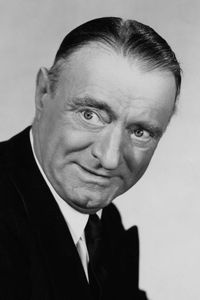German-born actor, known for his impressive range in both comedic and dramatic performances, often portraying pompous bureaucrats or arrogant individuals. Born on October 11, 1884, in Hamburg, Germany, Ruman initially studied electrotechnology in college before switching to acting.
He served in the Imperial German Forces during World War I before moving to the United States in 1924. Upon his arrival, he became close friends with playwright George S. Kaufman and critic Alexander Woollcott, frequently appearing in high-quality stage productions on Broadway.
As the film industry transitioned to talkies, Ruman found himself in high demand, becoming a favorite of the Marx Brothers. He notably appeared as Herman Gottlieb, a stiff-shirted opera owner, in the comedy classic A Night at the Opera (1935). He also played a know-it-all surgeon in A Day at the Races (1937) and a dual role in A Night in Casablanca (1946).
With his distinctive German accent, Ruman became a regular in several World War II espionage thrillers, including Confessions of a Nazi Spy (1939),They Came to Blow Up America (1943),and The Hitler Gang (1944). He also delivered a superb performance as the two-faced POW guard Schulz in the acclaimed Stalag 17 (1953).
Ruman worked frequently with renowned director Ernst Lubitsch, appearing in Ninotchka (1939) and To Be or Not to Be (1942). Throughout his career, he accumulated over 100 feature film appearances, as well as numerous guest star spots on television shows.
Ruman's health declined significantly during the final two decades of his life, and he ultimately passed away on February 14, 1967, due to a heart attack.



















































































































